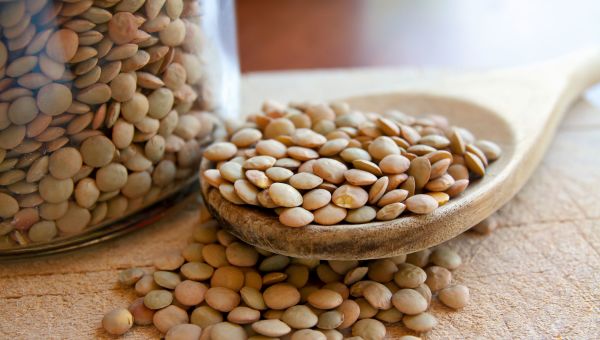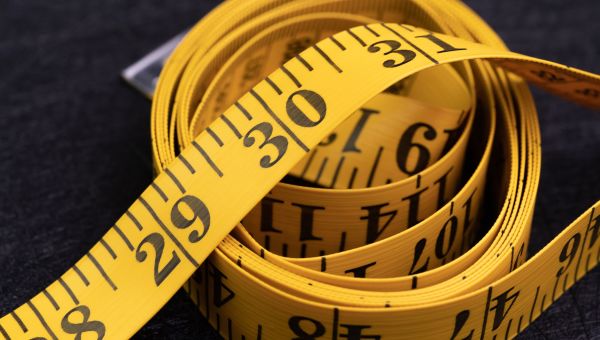6 things you should know about belly fat
Carrying extra pounds around your midsection? Here's how a few simple tweaks can help you address belly fat.
Updated on February 1, 2023

You can carry extra weight just about anywhere on your body. But when it’s located around your waist, it may have some particularly serious consequences for your health. Deep belly fat is called visceral fat. It produces proteins and hormones that can lead to higher levels of low-density lipoprotein (LDL), aka “bad” cholesterol, as well as high blood sugar, blood pressure,… Show More
You can carry extra weight just about anywhere on your body. But when it’s located around your waist, it may have some particularly serious consequences for your health. Deep belly fat is called visceral fat. It produces proteins and hormones that can lead to higher levels of low-density lipoprotein (LDL), aka “bad” cholesterol, as well as high blood sugar, blood pressure, and triglycerides. It's also a player in insulin resistance and inflammation.
But it doesn’t have to be that way. With a few simple changes to your lifestyle, you can lose pounds, trim your midsection, and boost your overall well-being.
Show Less
Your Diet Matters, Naturally
The type of food you eat affects the amount of belly fat on your body. A 2020 review published in BMC Cardiovascular Disorders looked at studies involving people who were overweight or had obesity and found they could measurably reduce their body weight by eating whole grains.
You can, too. Replace… Show More
The type of food you eat affects the amount of belly fat on your body. A 2020 review published in BMC Cardiovascular Disorders looked at studies involving people who were overweight or had obesity and found they could measurably reduce their body weight by eating whole grains.
You can, too. Replace refined grains such as breakfast cereal with satisfying whole grains like brown rice and oatmeal. Make them part of an overall nutritious diet that includes lots of fruit, veggies, and lean protein, and minimizes sugar, salt, and unhealthy saturated fat.
Show Less
Sitting Promotes Belly Fat
Belly fat tends to amass when you spend excess time sitting. To help lose this weight, it’s wise to get up and move. Shoot for at least 150 minutes of moderate-intensity physical activity or 75 minutes of vigorous-intensity activity each week. Aerobic exercise such as walking, jogging, swimming, or… Show More
Belly fat tends to amass when you spend excess time sitting. To help lose this weight, it’s wise to get up and move. Shoot for at least 150 minutes of moderate-intensity physical activity or 75 minutes of vigorous-intensity activity each week. Aerobic exercise such as walking, jogging, swimming, or biking are good options. Remember to exercise at an up-tempo speed, rather than a window-shopping speed.
Show Less
Don't Rely on Crunches Alone
Crunches can firm up the muscles under your belly and keep your core strong, and that's important for many reasons. But they won't make fat magically vanish. For that, you need regular aerobic exercise, such as walking.

Limiting TV Is a Wise Idea
Watching a lot of television—which can contribute to a sedentary lifestyle—has been linked to a higher likelihood of being overweight or obese. In a 2019 study published in BMC Public Health, participants who were considered already inactive increased their body fat percentage by 1 percent for… Show More
Watching a lot of television—which can contribute to a sedentary lifestyle—has been linked to a higher likelihood of being overweight or obese. In a 2019 study published in BMC Public Health, participants who were considered already inactive increased their body fat percentage by 1 percent for every additional hour of TV they viewed each week. So, even if you’re not very active, reducing your TV time may slow down weight gain.
Show Less
You Really Can Blame Your Boss or In-Laws
For many people, high stress levels can lead to weight gain. Stress increases the hormone cortisol, which makes you crave high-calorie snacks that get stored in your belly as fat. But you may not have to quit your job or avoid your family to ease your anxiety. Learning techniques to tame your… Show More
For many people, high stress levels can lead to weight gain. Stress increases the hormone cortisol, which makes you crave high-calorie snacks that get stored in your belly as fat. But you may not have to quit your job or avoid your family to ease your anxiety. Learning techniques to tame your response to stress can go a long way towards a healthier you.
Show Less
Measure In Inches and Pounds
Track your weight using both a scale and a tape measure. A scale will help you keep tabs on your total weight, including pounds lost or gained. Knowing your waist circumference can help you gauge your visceral fat and disease risk. When you measure, make sure you exhale and place the tape midway… Show More
Track your weight using both a scale and a tape measure. A scale will help you keep tabs on your total weight, including pounds lost or gained. Knowing your waist circumference can help you gauge your visceral fat and disease risk. When you measure, make sure you exhale and place the tape midway between your hips and the bottom of your ribs.
According to the Centers for Disease Control and Prevention, your waistline may be putting you at risk if you’re a male and it’s more than 40 inches around, or you're a female and it’s more than 35 inches. Your waistline measurement is just a flag, and it’s best to check with your healthcare provider to get a full exam.
And keep in mind that everybody’s weight tends to fluctuate a little from day to day, so your numbers may differ slightly each time you measure, even if you haven’t gained or lost anything.
Show Less
Johns Hopkins Medicine. The Skinny on Visceral Fat. May 2012.
American Heart Association. Too much belly fat, even for people with a healthy BMI, raises heart risks. April 22, 2021.
R de Mutsert, K Gast, et al. Associations of Abdominal Subcutaneous and Visceral Fat with Insulin Resistance and Secretion Differ Between Men and Women: The Netherlands Epidemiology of Obesity Study. Metabolic Syndrome and Related Disorders. 2018;16(1):54-63.
Wang W, Li J, Chen X, et al. Whole grain food diet slightly reduces cardiovascular risks in obese/overweight adults: a systematic review and meta-analysis. BMC Cardiovasc Disord. 2020;20(1):82.
U.S. Department of Health and Human Services. Physical Activity Guidelines for Americans, 2nd Edition. Page last reviewed February 1, 2019.
Harvard T.H. Chan School of Public Health. Television Watching and “Sit Time.” Accessed February 1, 2023.
Suminski RR, Patterson F, Perkett M, et al. The association between television viewing time and percent body fat in adults varies as a function of physical activity and sex. BMC Public Health. 2019;19(1):736.
Tomiyama AJ. Stress and Obesity. Annu Rev Psychol. 2019;70:703-718.
Moss RH, Conner M, O'Connor DB. Exploring the effects of daily hassles and uplifts on eating behaviour in young adults: The role of daily cortisol levels. Psychoneuroendocrinology. 2021;129:105231.
Centers of Disease Control and Prevention. Assessing Your Weight. Page last reviewed June 3, 2022.
NHS.uk. Why is my waist size important? Page last reviewed September 24, 2019.
Harvard Health Publishing. Taking aim at belly fat. Page last updated April 21, 2021.
Centers for Disease Control and Prevention. Assessing your weight. Page last reviewed June 3, 2022.
More On


video

article

slideshow


video


video
